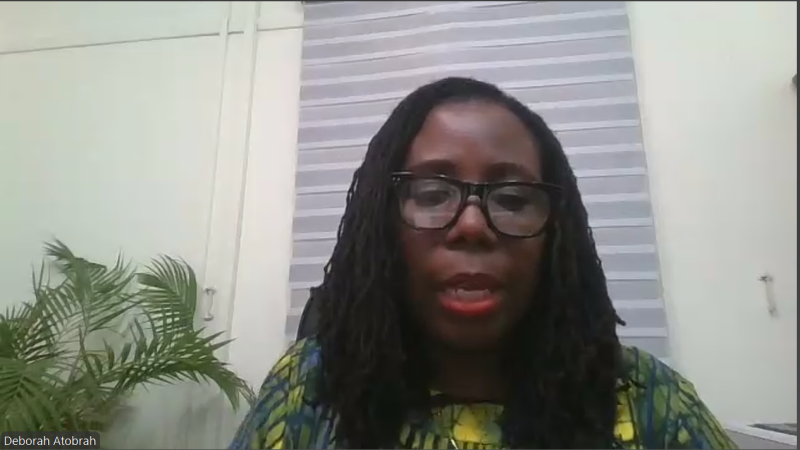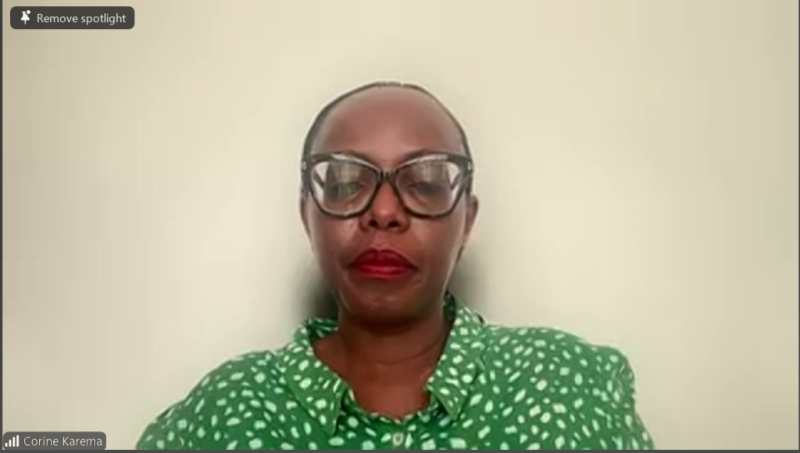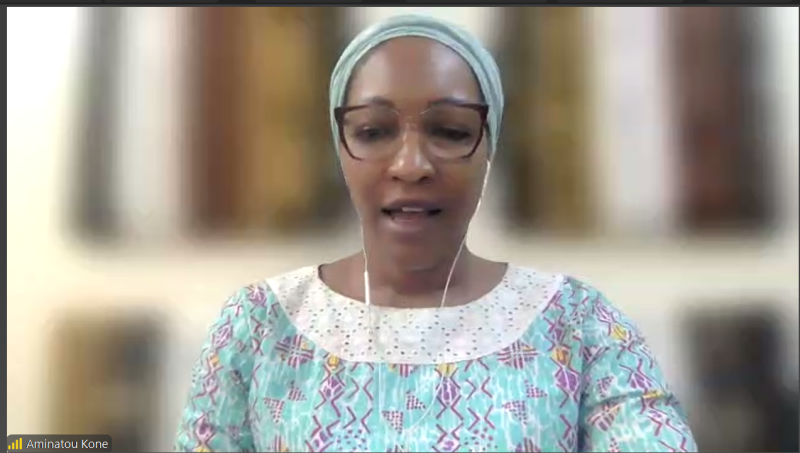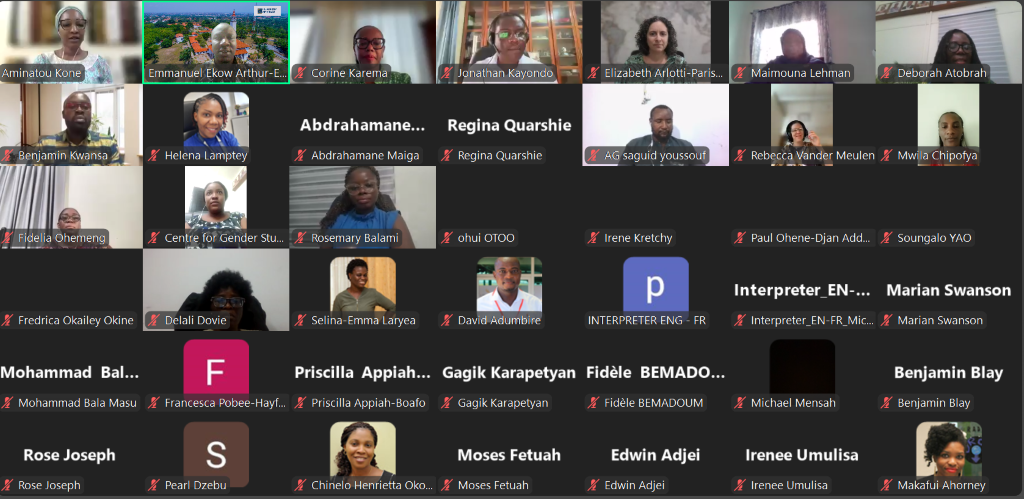Advancing Equity in Malaria Response: Gender-Responsive Strategies in Challenging Times
In a conversation hosted by The Global Malaria and Gender Community of Practice, over 70 malaria experts from around the world came together to discuss gender-sensitive malaria interventions for high-risk and marginalized populations, including children, adolescents, pregnant women, and occupationally vulnerable groups, such as mine workers and fishermen. The discussion occurred at a moment when funding constraints and shrinking political space for gender advocacy are affecting the gender-focused malaria workforce – particularly women in technical malaria roles, such as vector control and gender specialists.
Against that backdrop, the Community of Practice, or CoP, seeks to collaborate with relevant stakeholders and partners to promote the integration of gender into malaria work. The virtual panel discussion, “Navigating the Impacts of Funding Cuts and DEI Pushbacks on Malaria and Gender Response,” was moderated by Professor Aminatou Kone, Associate Professor in Molecular Biology at the University of Sciences, Techniques and Technologies of Bamako. The panel consisted of Dr. Jonathan Kayondo, Maimouna Lehman Mohama, Dr. Corine Karema, and Elizabeth Arlotti-Parish, who each provided insights on the funding crisis and its gendered implications for diversity, equity and inclusion in the fight against malaria.
Malaria funding in crisis

In her introductory remarks,Professor Deborah Atobrah, Director of the Centre for Gender Studies and Advocacy at the University of Ghana highlighted the urgent need for equity-focused action to bridge gaps in malaria prevention and care. She outlined some disturbing gaps in coverage: 41% of pregnant women do not sleep under insecticide-treated nets (ITNs); 35% of children do not seek care from a formal health facility; 36% of children who do seek care are not tested for malaria; and 56% of pregnant women have not received a third dose of intermittent preventive treatment in pregnancy (IPTp). These gaps are compounded by a $4.3 billion funding shortfall in 2023, leaving over half of the at-risk population without adequate protection. This shortfall is causing inequities in prevention and treatment, particularly for women and girls and children under five.
The consequences of these cuts are being felt across multiple continents and countries. Dr. Corine Karema described how budget cuts have reduced access to preventive treatments and increased transmission rates for pregnant women. Nigeria experienced a decline in Intermittent Preventive Treatment (IPTp) coverage, while Uganda recorded a 12% drop in rural teenagers' malaria services.

In Zambia, the national malaria programme partners with mining companies and the government to carry out indoor spraying and screening campaigns. In Sierra Leone and Nigeria, the funding cuts have undermined the work of more than 90% of community-based health professionals responsible for malaria detection, diagnosis, and treatment.

Maimouna Lehman Mohama added that reduced budgets and political resistance have also slowed progress in integrating gender in malaria programmes, particularly for vulnerable groups like teenagers and women. The Clinton Health Access Initiative (CHAI), as she noted, has worked to analyse inequality, but budget cuts have prioritised data-based strategies over behaviour-changing activities. This has resulted in less effective interventions for vulnerable populations who often face cultural and socio-economic barriers in accessing care.
Elizabeth Arlotti-Parish warned of the risk of losing passionate and skilled gender specialists. These experts are crucial for gender integration and gender-sensitive programming. Due to reduced funding and a shift towards life-saving interventions, these experts are being cut from malaria programmes, posing a double risk.

Ms. Arlotti-Parish suggested that programme leaders should value and utilise the broader skills of gender specialists, including management, data collection, analysis, business development, and technical writing, to preserve gender specialists and maintain diversity in malaria combat.
Innovative funding models offer hope
Despite these challenges, speakers suggested interventions to support malaria treatment and address health disparities. Maimouna Lehman Mohama highlighted innovative approaches to support local initiatives and community solutions in the fight against malaria. These include conditional and catalytic funding, impact investments, and public-private partnerships. Economic development funds focus on women's autonomy and gender-based violence, while community disease insurance and regional funding improve healthcare accessibility. She encouraged governments to plan their budgets to reduce inequalities in the fight against malaria.

Dr. Jonathan Kayondo emphasised the importance of diversifying the sources of local funding for research. He noted that, in the short term, collaborations with corporations and organisations can provide targeted support, while in the long term, organisations can engage local benefactors, humanitarian organisations, and wealthy members' clubs like Rotary and Lions Club. Strengthening research partnerships, expanding support offices, fostering cross-disciplinary collaborations, and tapping into government schemes can also help bridge funding gaps.
Women at the forefront of malaria management
The discussion highlighted the need for gender-disaggregated data in malaria programmes and health services. Elizabeth Arlotti-Parish pointed out that disaggregated data by gender and age is important as it helps differentiate beneficiaries of malaria health programs, but numbers alone does not capture barriers like financial constraints or women’s underrepresentation in training. Addressing these gaps is essential for equity and more gender-responsive health policies.
Dr. Jonathan Kayondo reinforced this view that women play a crucial role in caring for their children, who are among the most vulnerable to malaria. He argued that women must be at the forefront of the fight against the disease, and that funders should prioritise gender integration to strengthen both family health and broader malaria control efforts.
Prof Aminatou Kone concluded the discussion by summarising all the key points raised by the panelists.
In wrapping up the session, Professor Deborah Atobrah, of the Centre for Gender Studies and Advocacy, who convened the CoP, thanked all the participants and invited all partners in gender and malaria work to share relevant resources with the community to synchronise work on the gender and malaria intersection. She announced that the next meeting will be held in November, with the exact date to be communicated.

